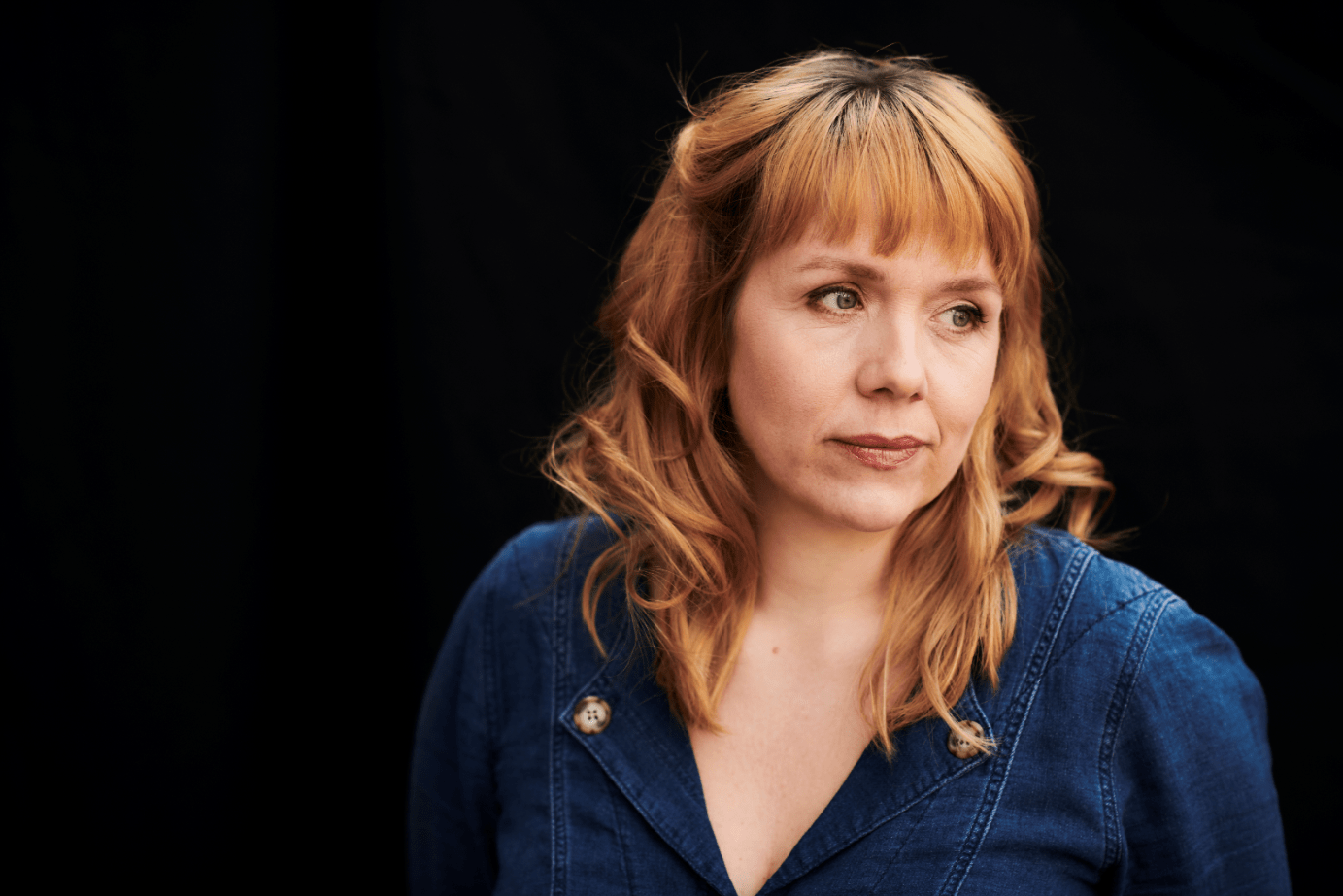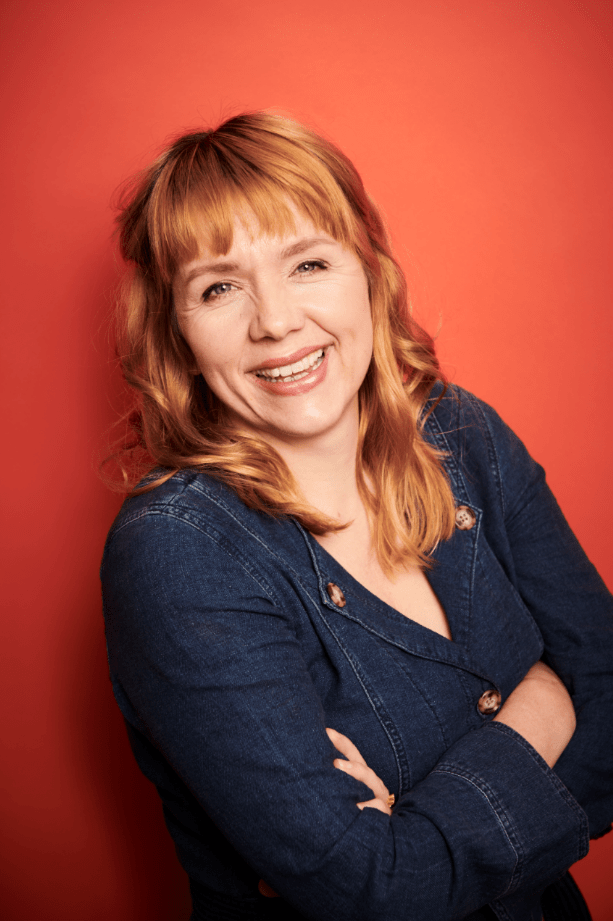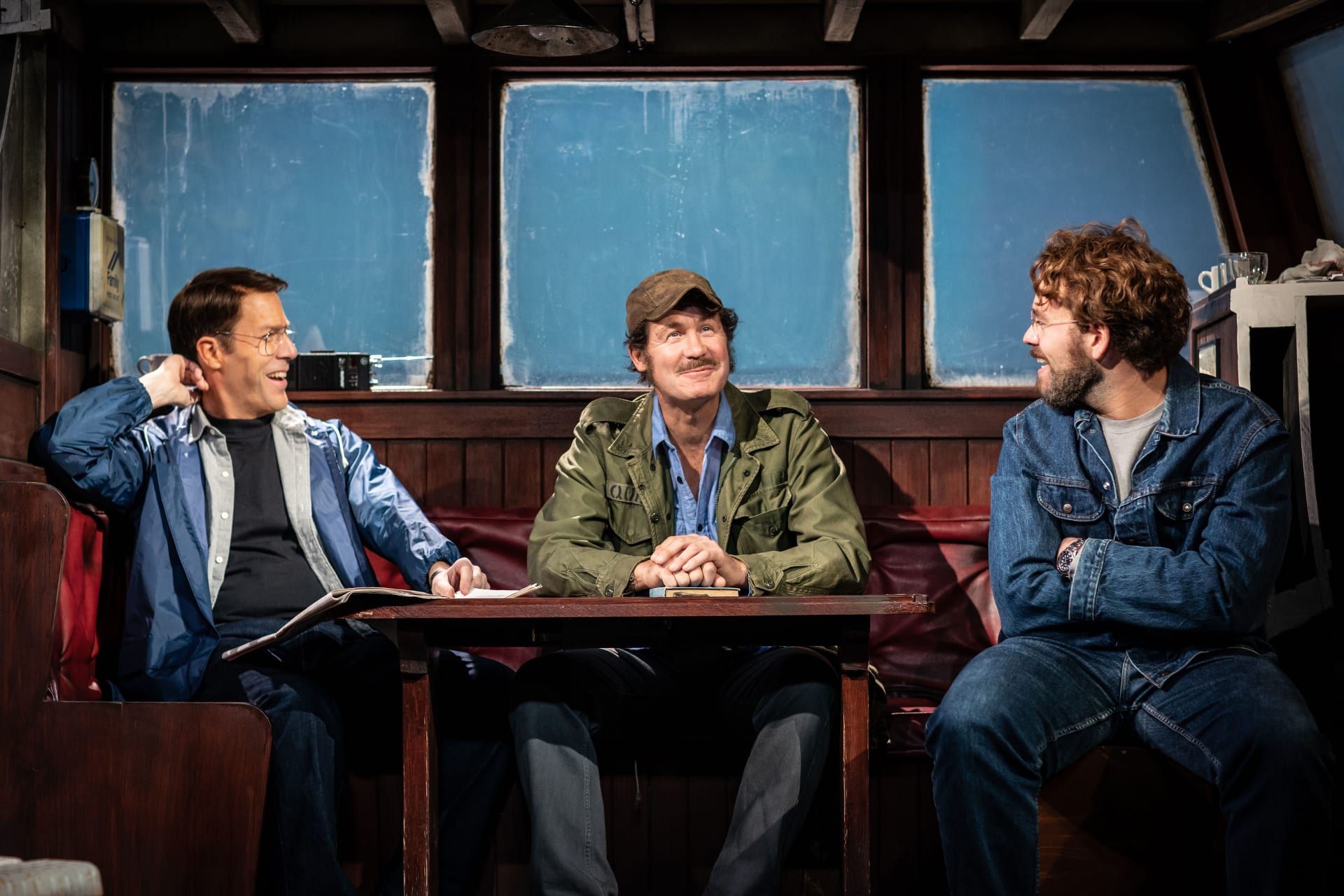OX editor and long-suffering housemate Sam gets an email, turns to me and announces that we’ve got time with Kerry Godliman for our Women’s Issue. “Bosh!” is my instinctive reply. His eyes widen in disbelief; that’s the title of Kerry’s new tour. He recoils from his desk and slaps his hand across his mouth with incredulity, the colour draining steadily from his face. Was it a coincidence? Was this the hand of God? We may never know.
I don’t know how to explain the word ‘bosh’ if you don’t already know what it means. It feels like a word explicable only by its context, although the relative verbosity of, ‘an expression of speedy and satisfactory completion of a simple or straightforward task’ is funny if not totally accurate. Kerry came to the word via Taskmaster. Her straight-talking, no-bullshit approach to the show afforded her the mononym and it’s stuck – “sometimes I’ll tweet something and someone will just answer, ‘BOSH!’” Fans of the show will know she won her season, forever occupying a place in the pantheon of British television comedy. “I’m just so immensely proud of that I can barely contain myself,” she says effusively. “Winning that was better than my wedding day, but my husband doesn’t know that.”
Away from Dave (the channel I mean, her husband’s name is Ben), her boshy predisposition hasn’t always proved so conducive, a realisation that provides the backdrop for her hour. She’s “working on the softer skills in life, like parenting and stuff” – child-rearing being something firmly outside the category of a ‘simple or speedy task’ – and this can be the source of some guilt for someone who’s outlook is more… boshy. A portion of guilt is surely an ingredient in any healthy parental relationship, like the shadow of a loving mind restlessly searching for whatever else can be done to improve the life of a child. Sam and I just adopted two cats, so I know how life changing it all can be – “Well, times that by 100.”
She describes the duality necessary for stand-up to work, and I wonder if she feels a similar duality in herself; going between adrenaline highs and sudden lows. Some comics play down the ‘humour as a defence mechanism’ trope, others reckon a little bit of the tragic clown is intrinsic to the medium; I just know I couldn’t hack it. “Well that’s because you’re probably mentally well,” she says encouragingly, “you shouldn’t do stand-up; stand-up is a breakdown. It’s getting a thrill out of a breakdown.”
I suppose if you are going to have a breakdown, someone might as well get a thrill out of it. The only witnesses I’ve had have been cats, and they don’t pay for the privilege. With 18 years’ experience, the “emotional rollercoaster” of it all has evened out for Kerry, though she does do mental exercises to remind herself not to just “go like the clappers” once she gets up onstage. “I have to remind myself that I’ve done quite a lot of writing and prep and I should probably try and remember some of the things I intended to say. Because once you get on stage and get that buzz – comedians are kind of laugh whores so they will go after any old cheap laugh if it’s kicking about.”
That’s fair enough; after all, any laugh is better than bombing. The closest you can get to bombing in an interview is after a toe-curlingly awkward question. I can’t bring myself to watch those YouTube compilations of interviews breaking down, it’s just too painful. Such is my anxiety about it that I tend to inquire what questions come up too often, and in Kerry’s case, it’s “what’s it like working with Ricky? How come I ended up working with him – all that.” You might sense a twinge of frustration there, that a woman would be asked not about her work, but what it was like to be witness to his work. Not so much – she’s more concerned with not repeating herself – but certainly in the case of Gervais’ dark comedy-drama Afterlife, not a second of its emotional tug would wrench without Kerry’s exquisite performance as Tony’s late wife Lisa. “It’s the perfect balance,” she says of the two characters, “if you just saw him behaving like that, you’d think ‘Jesus, this bloke’s awful.’ But when you see Lisa and him, them being happy and in love, it makes Tony loveable.”
So authentic is her beyond-the-grave performance that her husband can’t bear to watch it. “When you are acting in something… if you’re playing Macbeth, you’re not going to go and start stabbing people, it’s just in an imagination zone, so I was quite relaxed about it. It wasn’t until my husband said, ‘I can’t cope with this’ that I suddenly realised, God, it’s really sad.” The show’s poignant portrayal of a marriage ended too soon has rippled far outside the Godliman clan, sparking conversations about grief and mental health. “I’ve had some really intimate conversations with people about their loved ones,” she says of the show’s aftermath, “that was a really lovely upside of that project – a lot of people were talking about grief.”
Last month Milton Jones told us that, contrary to my rather naïve assumption, Mock the Week wasn’t exactly fun to do, at least originally. He said that one thing that mellowed out the rather testosterone-fuelled atmosphere was more women on the panel. “I think that’s partially true,” replies Kerry to the sentiment, “but I also think it’s not just about the fact they have more women on there, they’re also using a more eclectic bunch of comics full stop, independent of gender. There are people with a slightly different energy. In the old days, as well as it being all white blokes, it was specific types of white blokes. Whereas, say, James Acaster, he’s still a white bloke but differently funny.”
It feels like onscreen diversity is going in the right direction, but the question remains, how would I know? We all see what we want to see these days, devotedly filling the pews with our choirmates to be preached at by our subsection of Twitter. You can be buoyed by your echo chamber only to deflate at, for example, a remarkably non-diverse set of Oscar nominees. “I had to do a panel show and one of the subjects was the Oscars,” she says when I mention the sausage-fest that is the Best Director category, “I really struggled to think of anything original to say about it, I just can’t believe we’re still here.”
The solutions to underrepresentation are known, it just needs action by people with the power to change things. I’ve seen toe-curling interviews with women across the arts where they’re asked to account for their underrepresentation, as if the responsibility is theirs. I can’t help thinking that there’d be more women in comedy if people like me stopped asking women in comedy why there aren’t more women in comedy. “I definitely agree with that. Retract what I said about the most asked question. I don’t mind if it’s put positively like what we’re saying now, but when journalists ask ‘Do you think women are funny?’ I now don’t even answer.”
In unreservedly agreeing with that, the only thing that comes to mind is – bosh.
BOSH comes to The Mill Arts Centre in Banbury on 20 March. kerrygodliman.com










